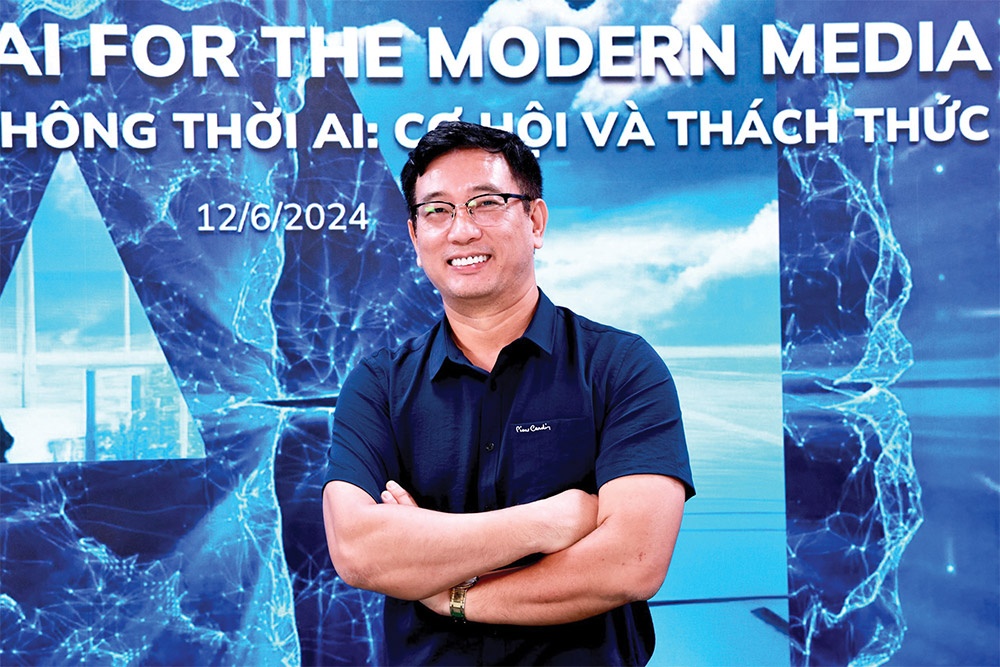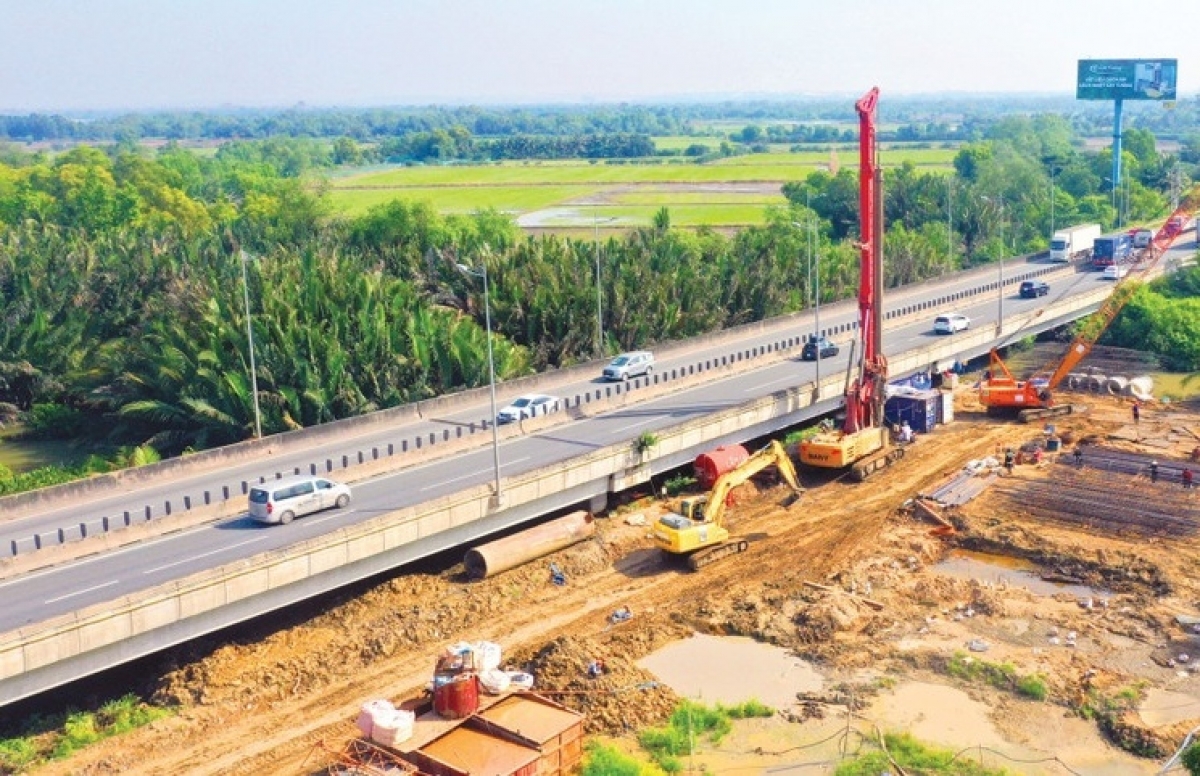INTERNATIONAL INVESTMENT
AND PORTAL
Additionally, all media agencies are required to provide news content on all digital platforms such as Facebook, YouTube, Instagram, and even TikTok.
 Dr. Do Anh Duc, dean of Multimedia Department School of Journalism and Communication University of Social Sciences and Humanities
Dr. Do Anh Duc, dean of Multimedia Department School of Journalism and Communication University of Social Sciences and Humanities
The strategy also sets goals for training and retraining media practitioners with digital skill and competences. One of the challenging goals of the digital strategy for media is to increase revenue by 20 per cent in the next 5-6 years. This is a significant target for press and media agencies to achieve, given the need to keep pace with cutting-edge technologies.
The success of digital transformation in Vietnam varies depending on the size of the media agencies. Smaller agencies often struggle to figure out how to start the transition and prioritise new technologies, while larger agencies are finding ways to invest in advanced technologies used by global media.
For audiences, this shift means an abundance of information and content available on digital platforms. Although the digital transformation of the media industry in Vietnam is still evolving and lacks a clear pathway, the progress in content development so far can be considered a success.
Ensuring that press and media workforces are being trained and equipped with the right tools to succeed with modern technology in the future is crucial for educational institutions everywhere. AI, VR, journalism, and other technological applications are pushing educational institutes to adapt to new technologies.
Earlier in June, a seminar was held among experts from media schools in Hanoi to discuss strategies for overcoming technology challenges from digital age to media education. Despite the ongoing discussions without a definitive conclusion, I proposed four strategies for media schools to pursue.
First, investing in new technology is essential. For example, Vietnam National University in Hanoi has committed to investing in technological resources, including new computers and applications, to enable journalism students to practice rather than just learn theories.
A second strategy is to invite media practitioners to the campus and train students on how to use new technologies to produce content.
The third aspect is creating a network of media educators. We are going to establish an association of media schools in Hanoi, from which hundreds of media trainers may work together to enable the exchange of knowledge on evolving teaching methods and curriculum development. This network may include adding new subjects, disciplines, and technology-focused lectures, especially on AI.
Lastly, establishing relationships with major tech corporations in the country is important. These partnerships provide us with technological resources for both media production and media education sectors. With support from local technology companies, the cost buying tech applications and devices for reaching and learning may reduce significantly.
Within the Vietnamese media industry, it is evident that traditional revenue sources, such as advertisements, both the print, and online media, are still prevalent. However, these revenue streams are declining, and new strategies are needed to sustain the media economy.
To increase press economics, it is imperative to invest in technology and prepare for future reader revenue, i.e. the audience pays for media content.
Many media agencies in Vietnam are reluctant to change their current system of content production and distribution. which is based on traffic and pay-per-view methods, but this approach is no longer sustainable.
Successful international leading news agencies like The Washington Post and The New York Times have long embraced data-driven strategies to boost reader revenue. Vietnamese media agencies need to learn from these examples and, crucially, adopt an open-minded approach to understanding their audiences. Recognising the importance of audience data is vital for successful digital transformation.
The Vietnamese media industry faces numerous challenges and opportunities in the era of digital transformation and AI. By leveraging technology, investing in new applications, and comprehensively understanding their audience, Vietnamese media agencies can compete effectively on a global scale while continuing to innovate and adapt to the rapidly changing media landscape.
 Media urged to improve for economy
Media urged to improve for economy
The media has been playing an active role in shaping a healthier business and investment climate, and supporting the government in formulating sound policies.
 New AI offerings pose more questions
New AI offerings pose more questions
The AI explosion is continuing at pace with new offerings from the biggest tech groups in the world, but ethical concerns and investing considerations are taking up more focus as industries like the media and manufacturing adjust their priorities.


















